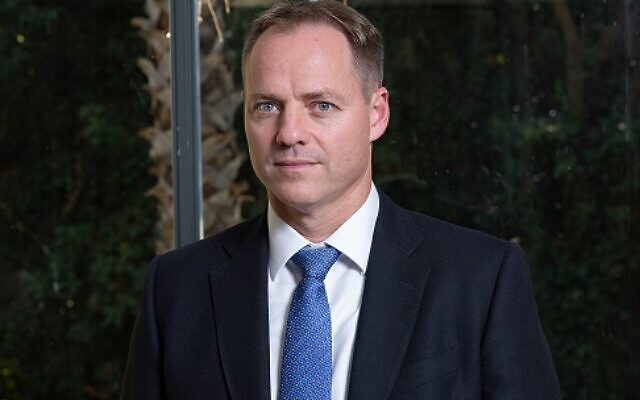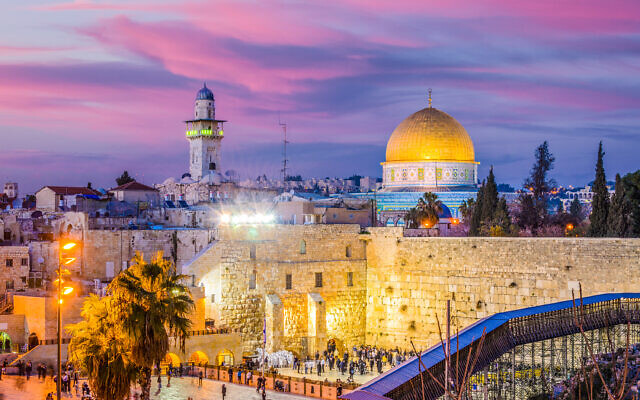Why Doesn’t Israel Have a Constitution?
The current crisis could have been avoided if the country had adopted one.
For 20 years, the Jerusalem-based Israel Democracy Institute, co-founded by Bernie Marcus, has been advocating for Israel to create and adopt a constitution. The current crisis in Israel that has spurred hundreds of thousands of IDF reserve officers, high-tech entrepreneurs, academics, economists, and average citizens to protest all over the country finally may provide the impetus to do so.
That crisis resulted from the current right-wing government’s aggressive drive to swiftly pass legislation that would overhaul Israel’s judicial system. Of the eight specific efforts to change the rules that, critics say, will weaken the judiciary, one has already passed in the Knesset, as of this newspaper’s deadline. The goal of the coalition government, led by Prime Minister Benjamin Netanyahu, is to pass as many of the bills as possible by Passover, when the Knesset starts its spring vacation.
“I hope this crisis won’t be wasted,” said IDI President Yohanan Plesner, in an interview with the AJT when he was in the United States for the Jewish Funders Network International Conference in March. “We’re in a constitutional crisis with signs of a potential implosion,” which, he said, is the result of a lack of state constitution.

The U.S. Constitution was passed in 1789, superseding the Articles of Confederation which were created in 1777, nearly a year and a half after the country declared its independence. The constitution defines the fundamental basis of U.S. federal law outlining three principal branches of the government and their jurisdictions. It is the oldest written national constitution currently in effect.
Israel is about to celebrate the 75th anniversary of its declared independence in 1948. The country didn’t adopt a constitution at that time because the ultra-Orthodox parties at the time vetoed it. Plesner said the fact that Israel doesn’t have a constitution means it has an “extremely fragile constitutional foundation. A constitution sets the rules of how to govern a country so in moments of crisis like this, the weakness is being manifested.”
He explained that instead of a constitution, the country built a quasi-constitution in chapters, known as Basic Laws. But there is no special procedure on what is required to pass a Basic Law, so they “are not protected in any way. Only a simple majority is needed to sufficiently change the checks and balance.” And that is what the current government is doing with its proposed set of legislation.
Unlike the U.S., the executive and legislative branches overlap. If the current legislation is passed, the executive branch will have more power over the currently independent judiciary branch.
According to Plesner, Marcus and the late U.S. Sec. of State George P. Shultz – once chairman of IDI’s International Advisory Council – were the visionaries behind IDI’s move to create a blueprint for the country’s eventual constitution. They “realized it was too risky for an Israel with a divided and diverse society…to survive without an agreement on the rules of the game.”
IDI, an independent center of research dedicated to strengthening the foundations of Israel democracy founded in 1991, drafted a “Constitution by Consensus” that included proposals to entrench basic rights on equality, along with recommendations for a formula to define the separation of powers in Israel. The Institute is revising its proposal for Israel’s 75th birthday.
According to the IDI website, explaining the “Constitution by Consensus,” it is the product of two years of deliberations by 100 public figures from across the political spectrum, and it is the “first attempt in the history of Israel to trace the contours of a constitutional order that is potentially acceptable to a large majority of the population. Due to its success in capturing the elusive balance between the Jewish and democratic foundations of the State, IDI’s draft has become the basis for the constitutional debate taking place in the Knesset today.”
One goal of the “Constitution by Consensus” is to anchor the commitment to the principles stated in Israel’s Declaration of Independence. Another aspect will be to complete a Bill of Rights.
“In hindsight,” said Plesner, “it was premature” when the blueprint was first proposed. “There was not enough ripeness.” He said the country “missed our previous constitutional moment,” but he is hopeful that the country is ready for a constitution now. Representatives from the IDI have been meeting with Israeli President Isaac Herzog who has tried to bridge a compromise between the coalition government and the opponents of the proposed judicial overhaul.
“This is a most serious proposal. It provides a framework,” but doesn’t solve all the problems of religion and state, said Plesner. But he believes it is the minimum required for now.
In addition to working with Herzog, the IDI is trying to educate the Israeli public about the proposed framework for a constitution. Plesner said polling shows that 70 percent of the Israeli public think the country needs a constitution.
“The leaders shouldn’t let this constitutional moment go to waste,” he stressed.
- Israel news
- politics
- Jan Jaben-Eilon
- Israel Democracy Institute
- Bernie Marcus
- Knesset
- Prime Minister Benjamin Netanyahu
- IDI President Yohanan Plesner
- Jewish Funders Network International Conference
- U.S. Constitution
- Articles of Confederation
- Basic Laws.
- U.S. Sec. of State George P. Shultz
- Constitution by Consensus
- President Isaac Herzog




comments